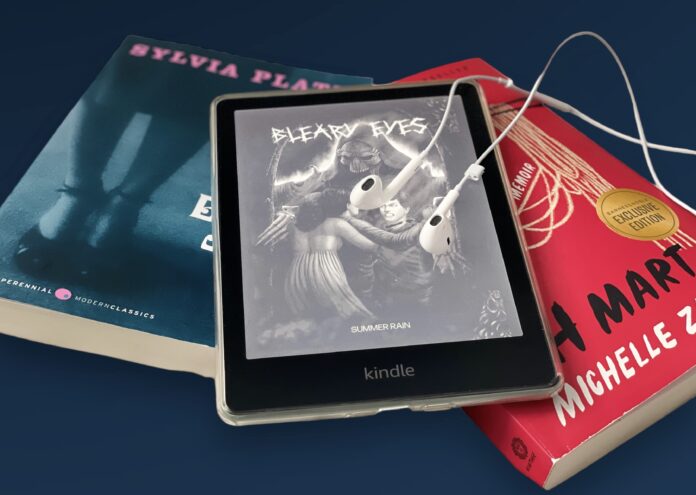Are you one of the many premium users to support the biggest music streaming services in the world? Well lucky for you, Spotify has recently announced another benefit for being a premium subscriber for the platform. Spotify premium users will now have access to 15 hours of free audiobook listening per month.
The new feature is already available for Premium users in the U.K. and Australia and will be in the U.S. later this year. Premium users will have access to 150,000 titles and among that selection will be 70% of bestselling titles from major publishers including Hachette, HarperCollins Publishers, Macmillan, Penguin Random House, Simon & Schuster and RB Media, as well as independent authors and publishers globally, including Bolinda, Dreamscape and Pushkin according to Variety.
The announcement comes after Spotify’s expensive efforts to claim a spot in the podcasting space. According to Hollywood Reporter, the company has yet to turn a profit in the podcasting segment as the company loses exclusive deals such as the podcast deal with Prince Harry and Meghan Markle in June. However, now it seems that Spotify’s next acquisition is the audiobook industry. After launching its audiobook business model in September 2022, Spotify’s announcement of 15 hours of audiobook listening for premium users might be the push the company needs to successfully enter the audiobook industry. Or is it?
Co-president of the English Club at UNLV and English major Joleen Jones says that the usefulness of 15 hours of audiobook listening will depend on the listener and the book.
Jones explains, “15 hours depends on the person and the book because if you are reading Moby Dick by Herman Melville that’s like 30 hours. And the average amount of words that are spoken in one hour of an audiobook is about 10,000. So, 15 hours is about 150,000 words; you’re not going to get through longer pieces. It’s not gonna be as useful as you might think unless you are consistently reading small books like Coraline.”
Jones continues to say that Spotify’s marketing ploy to attract members of the literature community, such as herself, will not be successful when compared to other audiobook services like the free platform, Libby, or the popular platform Audible.
“So it’s kind of redundant when there are other services that offer you complete books for the same amount of credits every month. I would rather much still use Audible rather than Spotify if I was working off of 15 hours,” says Jones.
However, the other co-president of the English Club at UNLV and English major, Summer McLean, sees Spotify taking more initiative to enter the audiobook industry as a positive for independent publishers and authors, such as herself.
Mclean goes by her pen name, Summer Rain, and she is the author of the published book “Bleary Eyes” a YA paranormal thriller novel deeply rooted in depression and other mental illnesses.
McLean explains that Spotify’s platform will give a place for lesser-known authors as it has done for other smaller creatives in the music and podcast industry.
“I think Spotify would be a good spot… for [less traditional] publishing, not the big-name books or classics. The [lesser known] audiobook people who want to go on there are similar to the rappers and singers posting their own music to Spotify … Spotify has always been a place for the smaller artist communities, so I do think that is one benefit of Spotify doing this. The indie artists will definitely find a place to put their books there.” says McLean.

